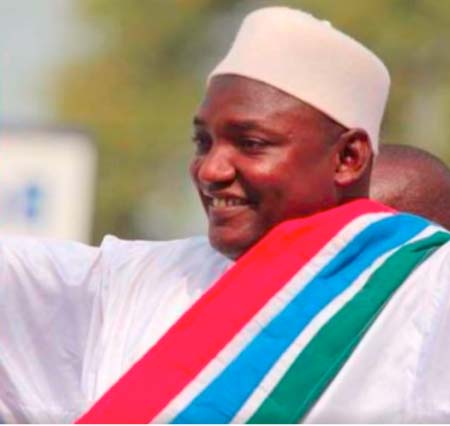
President
Adama Barrow has reaffirmed his support for civic education in The Gambia.
Receiving a delegation from the National Council for Civic Education (NCCE) in
his office on Friday, President Barrow said the NCCE played a critical role in
educating the masses. “An enlightened people are an empowered people,” he
noted.
The NCCE delegation called on the Gambian
President to introduce its members and brief him on the Council’s activities,
as well as the constraint that it faced in executing its mandate. Council
Director Alhajie Sering Fye explained that one of the main inhibiting factors
was not having an approved budget to facilitate proper planning. He said that
other challenges included not having a permanent office for the Council,
mobility challenges in reaching communities due to old vehicles that were no
longer road-worthy, and difficulties in organising outreach activities.
Director Fye spoke of plans to decentralise
the Council into the various regions in order to get closer to the people. He
said that it had developed a strategic plan, which could form the basis for a
review of the National Council for Civic Education Act.
President Barrow told the delegation that this
was a time of reform and planning across the board. He explained that reforms
were underway to decongest the Office of the President by decentralising
various portfolios to the right ministries.
He added that his government was consulting both at bilateral and multilateral
levels for support to the country. The President reminded the Council members
that despite the difficult situation inherited, there was hope, and he assured
them that their concerns had been well noted.
Chairman Fye thanked the President for his
support and said the Council had noted his commitment to civic education and
civic awareness when he singled it out to Gambians in his Independence speech
in February.
Mr. Fye pointed out that the majority of the
Gambian populace did not receive formal education and he stressed the
importance of sensitising through community meetings, workshops and the use of
community radio. State House press

